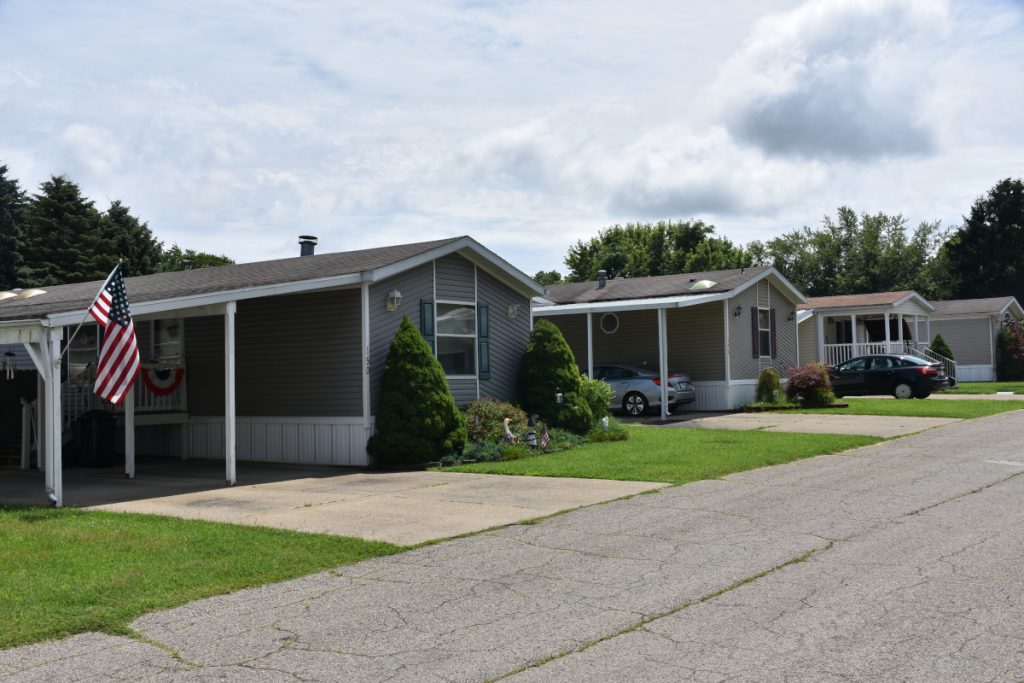David Ruby began his career in private equity before starting his own business in the manufactured housing industry almost six years ago. It’s become an industry theme: so much “new money” coming to manufactured housing, and the news stations and political platforms have been quick to criticize those new players who make mistakes.
But new owners and investors who are reticent to inquire and learn are a very small part of the mosaic that makes up manufactured housing.
Ruby knows that, proves that, and wants to set the record straight.

New and Growing Quickly
Gemstone Communities started out of a room at Ruby’s home.
“My wife would help me send out the residents’ monthly statements. We would cut postcards out of cardstock, hand stamp them and then walk them down to an old blue mailbox at the end of our street,” Ruby said.
Gemstone expanded into a spare office at a small law firm run by a friend and colleague. Now, with rapid growth and expansion, Gemstone has moved to a brand-new, state-of-the-art office building in Troy, Michigan.
The company shows an authentic and sophisticated approach to property management.
Gemstone acquired its first three communities in southern Indiana in 2014. Since, it has grown to own and operate 39 communities in seven states across the country. All of those acquisitions happened in about 20 deals.
And Ruby isn’t looking to stop acquiring anytime soon.
“We see continued opportunity in this industry for growth. There is no shortage of undercapitalized properties that, with hard work and investment, can’t become exceptional communities,” he said. “We believe we have the right attitude and resources to make that happen.”
Learning the Business

And Ruby is not one to tout. It’s definitely been a learning curve and a humbling experience for him. He knows he made a fair amount of newbie mistakes in due diligence, received a hands-on education in infrastructure crawling underneath homes in the middle of winter to find water leaks, and has learned to navigate the eclectic personalities on every side of the industry.
But, the one thing he always has done, is put the residents first.
“A couple weeks ago we had a resident come out with tears in his eyes because we were paving his driveway,” Ruby said. “He told us no one had ever done anything like that for him. It was a big deal to him, not us, but what you learn is that people genuinely want to live in a nicer place and we can help make that happen.”
Gemstone Communities sometimes spends more than allocated in deferred maintenance and capital expenses. That is because Ruby views his communities as long-term investments. To date, he has not sold anything.
“When you see how some other owners operate, by making bare improvements if any, and aggressively increasing rents, it becomes difficult to justify the purchase. We have acquired some of these properties. We have to pay substantially more than the previous owner paid, even when they’ve owned the property for a short period. Their model is to quickly increase income and “flip” the deal. And when rents are pushed so quickly it is challenging for us to make the necessary improvements. We balance this challenge with a long term investment horizon. We believe in manufactured housing and we know that if we put the work in we can justify the purchase price,” he said.
Gemstone Communities By State
- Florida — 15
- Indiana — 4
- Louisiana — 1
- Ohio — 13
- N.J. — 1
- Michigan — 2
- Texas — 3
A good example of the learning curve can be found in one of the first properties Gemstone acquired in Indiana.
“The rent roll was a little light, the homes weren’t in great shape and the expenses weren’t exactly represented accurately. We had to hustle, bring in homes, increase the occupancy to make the deal work. It was a good experience. And things are going well now,” Ruby said. “We have about 4,500 sites under management. We more than doubled last year. We acquired five communities on our own, with our own pool of capital, and we did a large deal down in Florida with Chicago-based Inland, one of the nation’s largest commercial real estate firms. That was a purchase of 13 properties and nearly 1,400 sites.”

Staffing Up for Success
Ruby said one of the most difficult decisions was when and whom to hire. Gemstone waited about three years to hire its first on-staff corporate employee, which may have been too long, according to Ruby.
“It’s hard,” he said. “It’s hard to make that first hire. You keep pushing it. Say it’s an entry-level salaried person, I was looking at that expense on a monthly basis and wanting to push it just one more month. However, once I finally mentally separated the business bank account from the personal bank account it became easier and things fell into place. You don’t realize how much you need that support though, until you get the first person in, assuming it’s a good hire. It’s absolutely critical. And then it starts to snowball. Today we employ over 50 people and each one of them is absolutely crucial to our success.”










